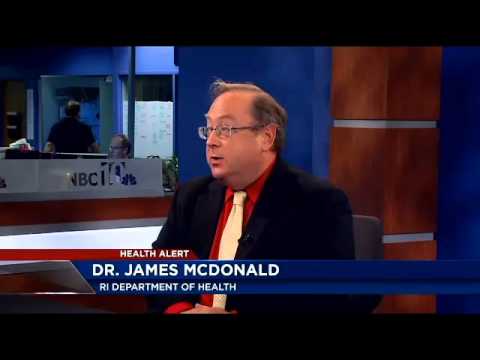Is Measles Present in Rhode Island?
Measles, a highly contagious viral infection, has been a growing concern in many parts of the world. In recent years, there has been an increase in measles cases in the United States, raising questions about its presence in Rhode Island. This article aims to provide an overview of the current situation, the public health concerns, tracking of cases, vaccination rates, symptoms, prevention strategies, containment efforts, impacts, public awareness campaigns, and future preparedness regarding measles in Rhode Island.
Measles Outbreak: Rhode Island’s Current Situation
Rhode Island has not been immune to the measles outbreak that has affected many parts of the country. In the past years, there have been several confirmed cases of measles in the state. These cases have led to concerns among public health officials and the general population regarding the spread of the disease. It is crucial to understand the current situation to effectively address the issue.
Public Health Concern: Measles in Rhode Island
Measles poses a significant public health concern in Rhode Island. The disease spreads easily through respiratory droplets, making it highly contagious. Unvaccinated individuals are particularly vulnerable, including infants who are too young to receive the measles vaccine. Measles can lead to severe complications, such as pneumonia and encephalitis, and in rare cases, death. The potential for outbreaks and the risk it poses to public health necessitate immediate attention and action.
Tracking Measles Cases in Rhode Island
Tracking measles cases is crucial in understanding the spread of the disease. The Rhode Island Department of Health closely monitors and tracks each reported case of measles. This enables health officials to identify trends, hotspots, and potential sources of transmission. By tracking cases, authorities can take proactive measures to prevent further spread and protect the population.
Measles Vaccination Rates in Rhode Island
Vaccination is a key strategy to prevent measles outbreaks. In Rhode Island, vaccination rates have been relatively high, with the majority of the population receiving the measles-mumps-rubella (MMR) vaccine. According to the Rhode Island Department of Health, the MMR vaccination rate for school-age children is above 95%. However, despite the high vaccination rates, pockets of unvaccinated individuals still exist, potentially leaving Rhode Island susceptible to measles outbreaks.
Understanding the Symptoms of Measles
Recognizing the symptoms of measles is crucial for early detection and containment. The initial symptoms resemble those of a common cold, including fever, cough, runny nose, and red eyes. After a few days, a characteristic rash appears, starting on the face and gradually spreading to the rest of the body. Measles symptoms can be severe, and individuals exhibiting these signs should seek medical attention to prevent further transmission.
Preventing Measles: Importance of Vaccination
Vaccination is the most effective way to prevent measles. The MMR vaccine, typically administered in two doses, provides long-lasting immunity against the disease. Vaccination not only protects individuals but also contributes to the community’s immunity through herd immunity. Maintaining high vaccination rates is crucial in preventing measles outbreaks and protecting vulnerable populations.
Measles Spreading: Rhode Island’s Vulnerability
Rhode Island’s vulnerability to measles outbreaks stems from factors such as international travel, pockets of unvaccinated individuals, and the highly contagious nature of the disease. International travel can introduce measles into the state, while unvaccinated individuals can serve as sources of transmission. The ease with which the virus spreads increases the risk of outbreaks, emphasizing the need for comprehensive prevention strategies.
Measles Containment Strategies in Rhode Island
Containment strategies are vital in controlling measles outbreaks. Rhode Island’s public health officials employ various measures to limit the spread of measles. These include rapid identification and isolation of cases, contact tracing to identify potential exposures, vaccination campaigns targeting vulnerable populations, and public education initiatives. By implementing these strategies promptly and effectively, health authorities aim to contain and ultimately eliminate measles in Rhode Island.
Impacts of Measles Outbreak on Rhode Island
Measles outbreaks can have significant impacts on Rhode Island’s healthcare system, economy, and overall well-being of the population. The direct medical costs associated with treating measles cases, hospitalizations, and complications can strain healthcare resources. Additionally, outbreaks may lead to school and workplace closures, impacting productivity and disrupting daily life. Recognizing these potential consequences highlights the importance of proactive measures to prevent and control measles outbreaks.
Public Awareness Campaign: Combating Measles in RI
Promoting public awareness is crucial in combating measles in Rhode Island. The state government, in collaboration with healthcare professionals and community organizations, runs public awareness campaigns to educate the public about the importance of vaccination, recognizing symptoms, and seeking timely medical attention. By disseminating accurate information and dispelling misconceptions, these campaigns aim to increase vaccination rates and reduce the risk of measles outbreaks.
Future Preparedness: Measles Prevention in Rhode Island
Future preparedness is key to preventing measles outbreaks in Rhode Island. The state continues to invest in strengthening its healthcare infrastructure, surveillance systems, and vaccination programs. By staying vigilant, monitoring trends, and adapting strategies based on emerging evidence, Rhode Island aims to build resilience against measles and other infectious diseases. Preparation and collaboration with local, regional, and national partners will be instrumental in safeguarding the health of Rhode Island’s population.





